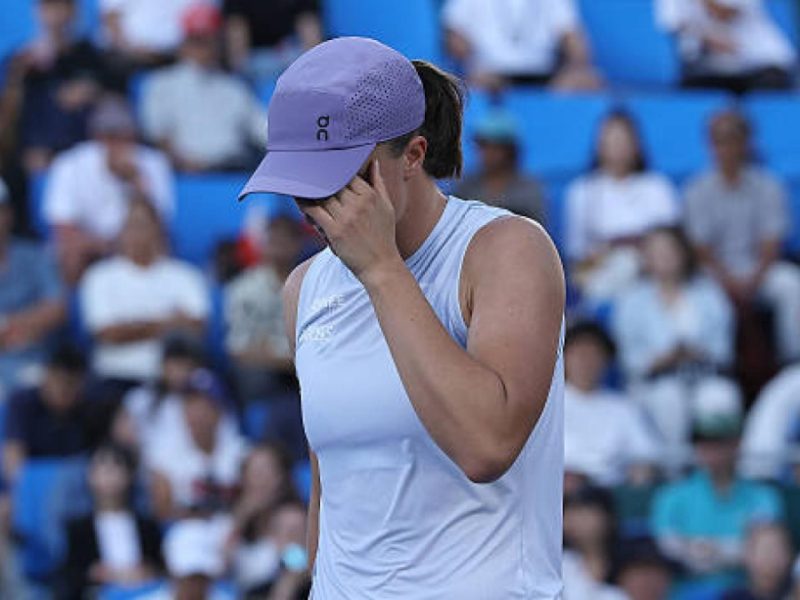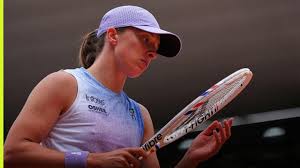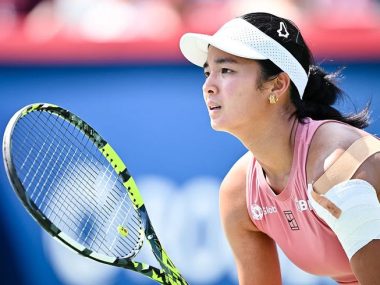In the world of tennis, honesty can be as disarming as power on the court. Following her surprise defeat at the China Open, World No. 1 Iga Świątek didn’t shy away from addressing her struggles. “I just played bad… I didn’t feel anything was working,” the four-time Grand Slam champion admitted in her post-match press conference.
Świątek’s candid reflection came after her shock third-round exit at the hands of American Emma Navarro. The top seed faltered 6-4, 4-6, 6-0, a scoreline that highlighted both Navarro’s poise and Świątek’s collapse. While the Pole managed to force a deciding set, the wheels fell off dramatically in the final stretch, where she was bageled for only the second time in her professional career.
Her brutal self-assessment cut through any attempt at excuses. Rather than citing fatigue, schedule congestion, or external conditions, Świątek pointed to her own performance. The admission resonated with fans for its refreshing clarity: an acknowledgment that even champions can have off days where nothing clicks.
A Blow in the Battle for No. 1
The loss comes at a critical time in the season. With Aryna Sabalenka and Coco Gauff hot on her heels, Świątek’s fight to finish the year as World No. 1 has become tighter. Every match counts, and a third-round exit in a WTA 1000 event hands her rivals an opening. The China Open was a chance for her to consolidate her dominance, but instead it ended in frustration.
What Went Wrong
Świątek’s match statistics told the story. Seventy unforced errors spilled from her racquet — an unusually high tally for a player known for discipline and precision. Her serve wavered, her forehand lacked depth, and her usually reliable footwork deserted her in key moments. Navarro, to her credit, stayed composed, redirecting pace and keeping Świątek uncomfortable until the very end.
The Bigger Picture
Świątek’s honesty is not just a personal reflection; it offers insight into the pressures of maintaining the top spot in women’s tennis. Success brings heightened expectations, and the mental toll can weigh as heavily as the physical grind. Yet, Świątek’s willingness to own her shortcomings rather than deflect blame shows why she is admired not only as a player but as a professional.
For fans, her words signal resilience. A bad day on court does not define a season. She has bounced back from setbacks before, and with major tournaments still ahead, there is little doubt she will regroup quickly.
“I just played bad,” Świątek admitted. Simple, raw, and truthful. But champions are remembered not for their losses, but for how they respond to them — and the tennis world will be watching closely to see how Świątek answers back.






